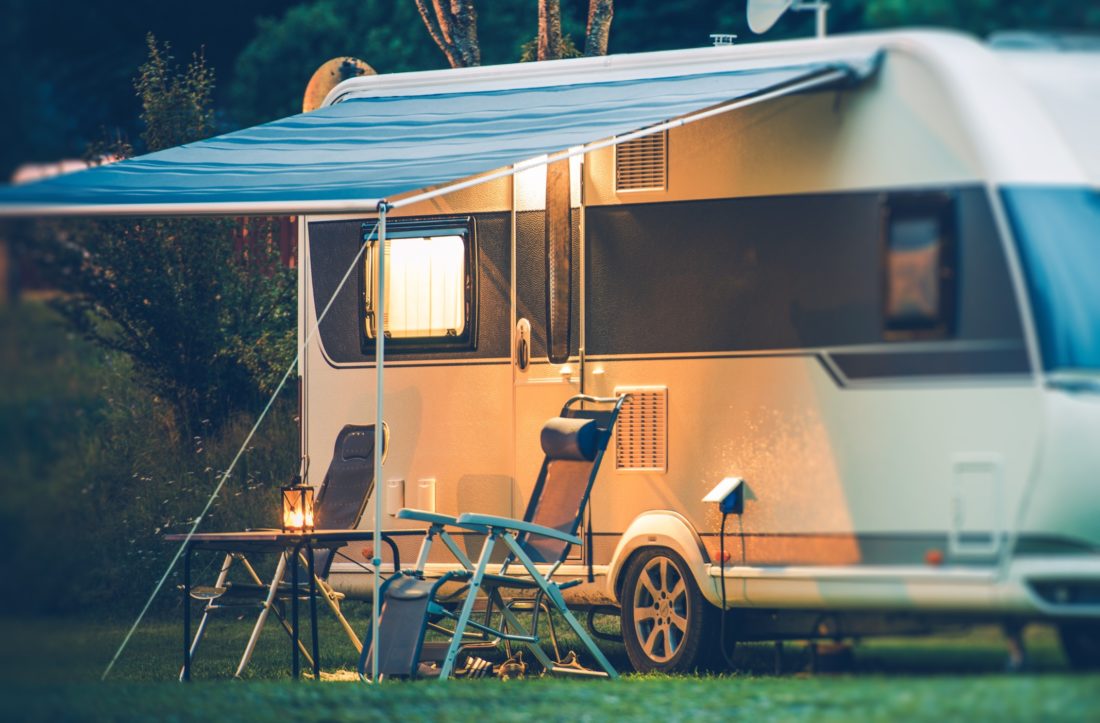
Is your caravan wrapped up for winter?
If your caravan is damaged due to lack of maintenance or has been victim to general wear and tear, you will not be able to claim for this on your insurance policy. The good news is that with thorough preparation you should be able to keep your caravan in tiptop condition for the new season. Forward planning and maintenance will likely save you money in the long run, as if a problem is left, it usually causes a much bigger, more costly issue down the line.
We take a look at how to prepare for winter and maintain your caravan over this period.
Check for damp
When your caravan is not in frequent use, it’s worth regularly visiting to inspect it with a damp meter; these can be purchased very cheaply. These readings give a quick indication of any early warning signs including leaks and excessive condensation.
If you notice a problem soon enough and identify the source, you may avoid more serious problems down the line such as mould and mildew. Damp is usually a symptom of a leak or appliance fault, so if not identified in time, this could even result in flooding.
Inspect your tyres
When driving a motor home, it’s essential to always regularly inspect your tyres and this becomes increasingly important in the winter season as there is a greater chance of grit, ice and slips on the road. Ensure you check your tyres before each journey you undertake and don’t under any circumstances drive with a damaged tyre.
If it has been immobile for an extended period of time, this increases the chance of tyre sidewall deterioration, so when it’s out of use, it’s worth taking extra measures to prevent this. Attempt to visit your caravan once a month to either move it or jack-up and rotate the wheels.
Admire the bodywork
Well, at least check it for a build-up of dirt and debris. If you notice your vehicle is looking a little worse for wear, this isn’t only detrimental to how it looks, it can also cause corrosion and damage to the bodywork. To prevent this, clean your vehicle with a non-abrasive product, checking for pinprick holes or white powder deposits. These are signs that there could be an issue, so if you do notice them, book your caravan into a workshop for a spruce up.
The most effective way to protect the bodywork of your caravan is to keep it undercover. If you’re able to keep it in a garage or carport, this is the best option. However, this isn’t feasible for everyone. Purchase a breathable cover designed specifically for caravan storage to ensure it doesn’t seal the caravan in a way that will encourage damp.
Check your battery charge levels
If your caravan will be unused for an extended period of time, it is recommended that you charge the battery every 4-6 weeks to prevent it from deteriorating prematurely. It’s wise to store the battery in a cool, dry place, away from freezing temperatures. Make sure you check before removing your battery from a caravan that your trackers or alarms aren’t dependent on it. Otherwise, you could be compromising its security.
It’s vital to ensure you don’t take an ‘out of sight, out of mind’ approach to your caravan in the months when it’s not in use, as this is the time when problems are more likely to arise. To talk to one of our team at R Collins & Co about insuring your caravan or motorhome, or if you have any queries regarding your existing policy, call us on 01977 558391.
